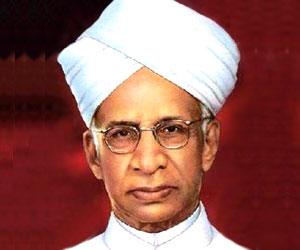Summary:
Science: Dr. S. Radhakrishnan believed that science and its advancements were essential for human progress and understanding the natural world. He emphasized the importance of scientific inquiry and the pursuit of knowledge through observation, experimentation, and empirical evidence. Science, in his view, could help humanity overcome ignorance and superstition, leading to the alleviation of suffering and the betterment of society.
Humanities: Radhakrishnan recognized the significance of the humanities in providing a comprehensive understanding of human culture, values, and history. He valued the study of literature, philosophy, art, and other disciplines that explored the human experience and shaped human thought. For him, the humanities were not only about acquiring knowledge but also about cultivating empathy, compassion, and a sense of shared humanity.
Religion: As a philosopher with a deep interest in comparative religion, Dr. Radhakrishnan believed in the universality of religious experience. He saw religions as different paths leading to the same truth, expressing the spiritual aspirations of humanity. Radhakrishnan advocated for a more tolerant and inclusive approach to religious diversity, where individuals could find common ground in their shared pursuit of spiritual fulfillment and moral values.
Analysis:
Synthesis of Science and Spirituality: Dr. S. Radhakrishnan's worldview was characterized by an attempt to bridge the gap between science and spirituality. While he recognized the significance of scientific inquiry, he also saw the importance of spiritual insights in comprehending the deeper dimensions of existence. For him, science and spirituality were not mutually exclusive but rather complementary aspects of the human quest for understanding.
Humanism and Ethics: Radhakrishnan's appreciation for the humanities and his belief in the universality of religious experience contributed to his humanistic approach to ethics. He emphasized the importance of moral values and ethical conduct in individual and societal life. His teachings encouraged people to embrace compassion, kindness, and a sense of responsibility towards others.
Interfaith Dialogue: One of the key aspects of Radhakrishnan's philosophy was his emphasis on interfaith dialogue and religious harmony. He believed that understanding and appreciating the various religious traditions could promote mutual respect and peaceful coexistence among different communities. His ideas on religious pluralism continue to be influential in contemporary discussions on tolerance and religious understanding.
Relevance in Modern Times: Dr. Radhakrishnan's thoughts on Science, Humanities, and Religion remain relevant in the modern context. As scientific advancements continue to shape our world, his call for integrating science with spirituality reminds us of the importance of ethical considerations in the pursuit of progress. Moreover, his emphasis on the humanities highlights the value of cultural and historical knowledge in shaping our identities and values.
In conclusion, Dr. S. Radhakrishnan's reflections on Science, Humanities, and Religion demonstrate his holistic and inclusive approach to understanding the world and human existence. His ideas continue to inspire discussions on the relationship between science and spirituality, the significance of the humanities, and the promotion of religious tolerance and harmony.


No comments:
Post a Comment